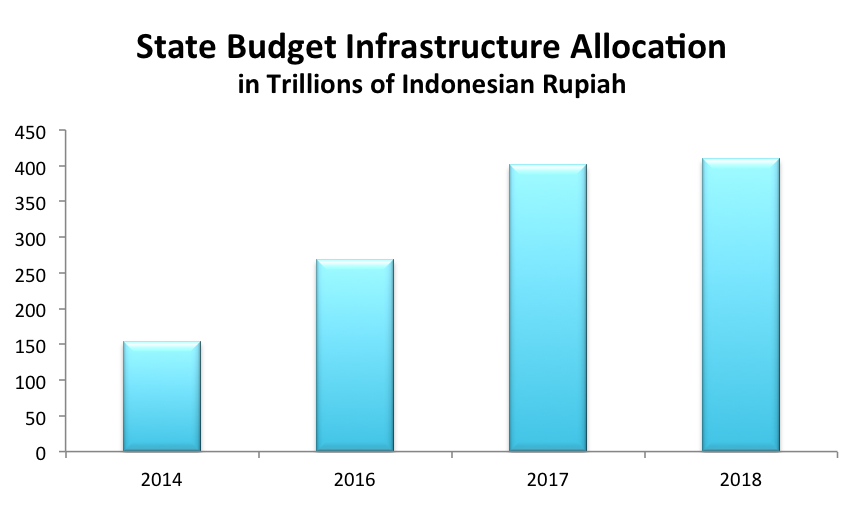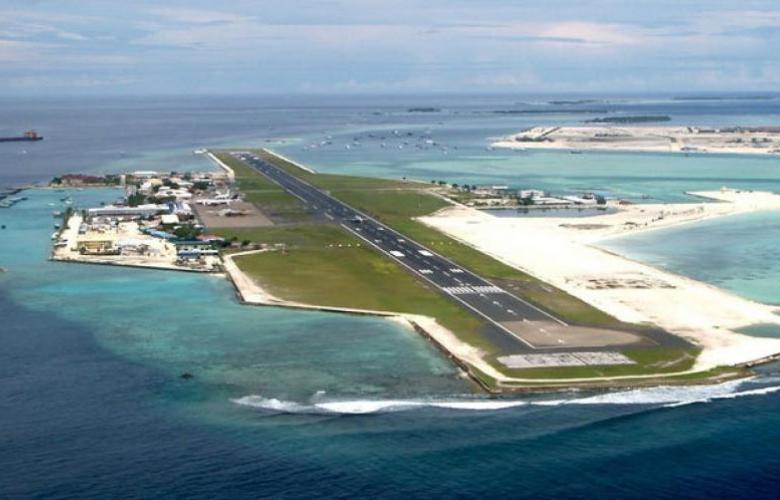Indonesia has allocated a large portion of its state budget to the development of infrastructure projects across the country. In 2014 this was IDR 154.7 trillion. In 2016 this increased to IDR 269.1 trillion. This year the infrastructure budget was IDR 401.1 trillion and in 2018 it is slated to be closer to IDR 410 trillion.
At a glance:
- A large portion of Indonesia’s state budget will be used to develop infrastructure projects across the country
- Projects are set to include 8 airports, 865 kilometres of new roads, 25 kilometres of toll roads, bridges spanning 8,695 meters, 620 kilometres of railway track
- In Bali, projects include an airport complex in North Bali, a tourism complex in West Buleleng, an integrated toll road, a local train network, two sports stadiums in Ngurah Rai and Cengkeling, a tourism industry complex on Nusa Penida, a new underpass at the entrance to Bali's Ngurah Rai International Airport and the widening of sections of the bypass road to Nusa Dua

Source: The Jakarta Post
All of this has raised the country's profile on the international stage and to some degree highlighted the shortfalls along with the initiatives driving the country forward. This, in turn, has prompted the government to seek innovative private sector investments in funding infrastructure, which the IMF believes is the only realistic way to meet the large and growing infrastructure gap.
According to Indonesia's Finance Ministry's Financing and Risk Management Director General, Robert Pakpahan, innovative funding will accelerate infrastructural development. These public-private partnerships would allow the government to focus budget allocations on projects that are necessary but not economically viable for investors, such as irrigation and drinking water.
What are the implications of this for Bali, whose economy is heavily invested in the tourism industry? In short, it means opportunity.
Bali's Deputy Governor, Ketut Sudikerta recently announced six new infrastructure projects, all of which support the island's tourism industry. According to Antara, the state news agency, these projects are:
- Airport complex in North Bali
- Tourism complex similar to ITDC in West Buleleng
- Integrated toll road
- Local train network
- Two sports stadiums in Ngurah Rai and Cengkeling
- Tourism industry complex on Nusa Penida
In addition, a new underpass at the entrance to Bali's Ngurah Rai International Airport and the widening of sections of the ByPass road to Nusa Dua have been given priority so they are completed before the upcoming IMF - World Bank conference in October 2018.
Sources: The Jakarta Post, Antara, Bali Discovery, IMF Blog (Paulo Mauro)
Similar to this:
Smart City initiatives critical for Indonesia's urban growth
IMF upbeat about Indonesia's economy in 2018
World Bank rewards Jokowi's economic reforms as EODB ranking improves






